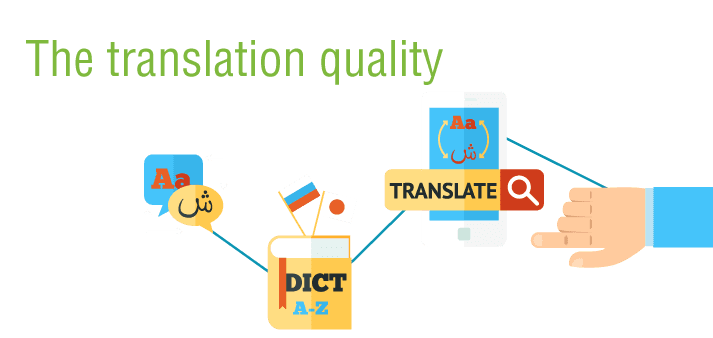
4 factors that can compromise translation quality
18 Jul 4 factors that can compromise translation quality
Translation quality is something everyone is concerned these days and the truth is, a bad translation can have enormous consequences in just about any field. Let’s not get into medical where it’s obvious what bad translation quality can do, in technical field, a bad translation of an user manual could have financial consequences if clients would sue the company for whatever reason (remember the guy who tried to dry his cat in the microwave?). Therefore no one wants to deal with bad translation.
The translation quality can be compromised by four major factors
Badly written source document
The original next is the basis of your translation project. The text should be written by a professional and its aim should be to share information in an effortless manner. If your source text is ambiguous and contains factual or grammatical mistakes, your translator can’t help you. Even the most competent translator cannot compensate for a poorly written source document. The transfer of information from one language to another would end up being what is crudely referred to as GIGO (garbage in, garbage out).

Incompetent translator
John Ciardi, a famous poet, translator, and etymologist, once said that “the translator’s ambition is the best possible failure. A bit of a challenge is always welcome, but things can go awfully wrong when a translator takes on a project that is far beyond his or her abilities. TO be able to deliver a high quality translation, a translator needs to have a thorough understanding of the text and the ability to transfer its meaning to the other language. Insufficient subject knowledge and/or poor linguistic skills can lead to serious problems in the translation. A combination of such deficiencies can easily turn ‘no water for seven days makes one week’ into ‘no water for seven days makes one weak”.
No proofreader
After seeking medical advice, it is only prudent to get a second opinion. Similarly, a proofreader provides just that in the context of your translation. In a perfect world, all translations should be proofread. Getting an independent proofreader is a good idea because he or she would use care, knowledge, skill, judgment, and experience to ensure that the world of the translator is accurate. The proofreader is there to ensure an optimized translation.
Insufficient time
While translators should always strive for no mistakes, there are times when their pursuit will be cut short by a tight deadline. Sometimes when the translations is urgently needed, translators don’t always have the luxury of thoroughly researching the subject, revising the vocabulary used, and hiring an independent proofreader to check his work. As the saying goes, haste makes waste, and a good translator will never compromise quality just to meet a deadline. The good news is experienced translators often need less time to finish and deliver a good translation.
Like everything else, the importance of a superb translation is most obvious when things tend to go wrong. The stakes are so high in the medical sector. Do not settle, a substandard translation can cause serious problems. Translators and translation companies need to always get their translations right. But what happens to your translation when they don’t?

Translation quality is something everyone is concerned these days and the truth is, a bad translation can have enormous consequences in just about any field. Let’s not get into medical where it’s obvious what bad translation quality can do, in technical field, a bad translation of an user manual could have financial consequences if clients would sue the company for whatever reason (remember the guy who tried to dry his cat in the microwave?). Therefore no one wants to deal with bad translation.
The translation quality can be compromised by four major factors
Badly written source document
The original next is the basis of your translation project. The text should be written by a professional and its aim should be to share information in an effortless manner. If your source text is ambiguous and contains factual or grammatical mistakes, your translator can’t help you. Even the most competent translator cannot compensate for a poorly written source document. The transfer of information from one language to another would end up being what is crudely referred to as GIGO (garbage in, garbage out).

